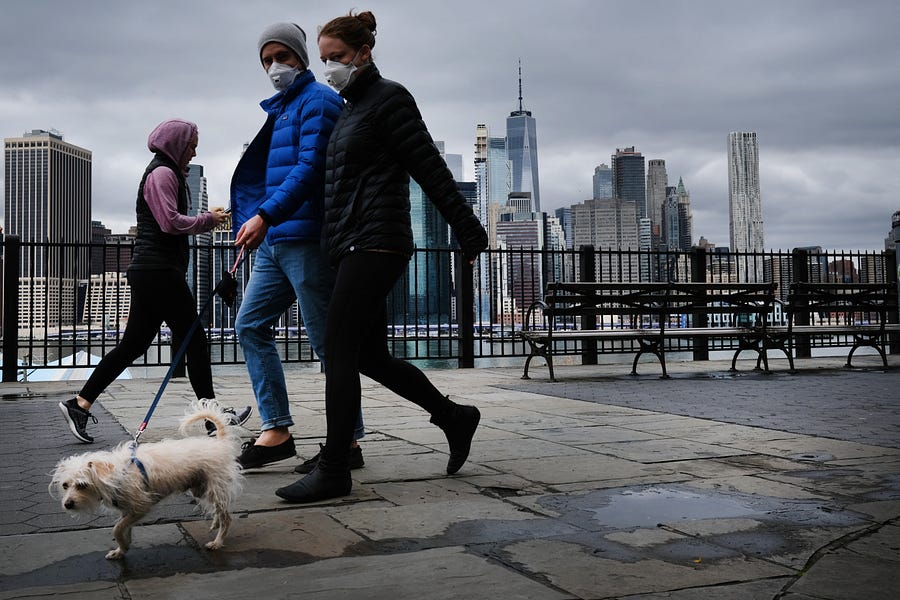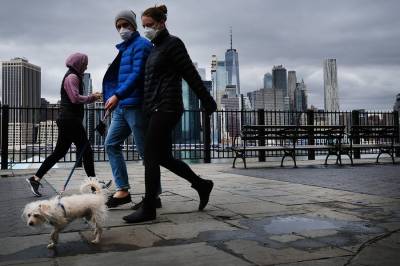There’s an intense, often ugly debate over the response to the COVID-19 pandemic. In broad brushstrokes, some contend that the lower-than-predicted death toll proves the models forecasting massive fatalities were needlessly sensational. Some even suggest they were deliberately so, to scare politicians, including President Trump, into taking drastic and unnecessary action.
A few conspiracy theorists—so-called “coronavirus truthers”—see more sinister motives at play. But, as is always the case, these cranks and grifters are best ignored, so I won’t shine a light on them here.
The serious debate centers around whether the initial models were always exaggerated, or whether the response to them is driving down fatalities more effectively than epidemiologists predicted. For what it’s worth, my opinion is “both.”
What makes the debate uglier than it needs to be is that many of the people denouncing the initial projections want to make the case that our response was deliberately misguided from the beginning — so much media hype, partisan point scoring, and ideologically motivated crisis exploitation — and that we never should have shuttered the economy.
I think these people are mostly on the wrong side of the argument, but I don’t begrudge anyone who’s desperate to get the country working again. The economic toll of this pandemic is staggering and will be felt for a generation or more, even if we get the much-craved “V”-shaped recovery when the all-clear is sounded.
The first error is assuming that the scientists at the Institute for Health Metrics and Evaluation, Imperial College London, National Institutes of Health and Centers for Disease Control and Prevention were acting in bad faith. Just because a cashier makes a math error when giving you change doesn’t mean he’s trying to steal from you. And just because these models weren’t perfectly oracular doesn’t mean anyone was lying.
Of course, predicting the spread of a new virus across the globe isn’t remotely like calculating the correct change for a bag of potato chips. We’re talking about the interdependent behavior of hundreds of millions of Americans, and billions globally, across institutions, communities and borders.
It’s almost surely the case that the models were wrong to one degree or another for the simple reason that any model is only as good as the data fed into it. With imperfect information—partly thanks to the outrageous dishonesty of the Chinese government and the grave missteps of the World Health Organization—it was inevitable that the models would never be more than best guesses. We’re far from out of the woods, but the fact that “only” some 60,000 Americans may die instead of 240,000 seems like something to celebrate, not an excuse to scapegoat officials who scrambled to save lives.
Still, there’s an interesting assumption common to both sides of the debate: that the government is responsible for all of this. Both defenders and the critics start from the premise that government diktats are the only variable here.
My American Enterprise Institute colleague Lyman Stone, an economist based in Hong Kong, makes the case that the essential variable in “flattening the curve” isn’t central planning but behavior change. Many businesses closed down well before they were ordered to. Millions of people practiced social distancing and refused to get on planes not because they were commanded to, but because they were convinced this was a wise course of action for themselves and their loved ones.
People change their behavior when they are given clear information about risks. Various countries have flattened the curve of COVID-19 cases in different ways, Stone explained on my podcast, The Remnant. Some relied heavily on contact tracing, others on quarantining the sick, others through lockdowns—or all of the above. “But what we’ve seen in every country is that what really does it is information,” Stone said.
Information doesn’t just come from governments. The death tolls in Italy and New York probably did more to change behavior on the ground than all of Trump’s press conferences or Dr. Anthony Fauci’s TV appearances.
And this raises another complication for those who think the government can just “re-open” the economy with the flick of a switch. Trump and all of the governors could lift the stay-at-home orders and federal advisories tomorrow. That wouldn’t necessarily fill the restaurants, airplanes or stadiums. People would still need to be convinced it’s safe. Such persuasion comes via clear, believable information, not orders from on high.
And that’s how it should be in a free society.
Photograph by Spencer Platt/Getty Images.







Please note that we at The Dispatch hold ourselves, our work, and our commenters to a higher standard than other places on the internet. We welcome comments that foster genuine debate or discussion—including comments critical of us or our work—but responses that include ad hominem attacks on fellow Dispatch members or are intended to stoke fear and anger may be moderated.
With your membership, you only have the ability to comment on The Morning Dispatch articles. Consider upgrading to join the conversation everywhere.